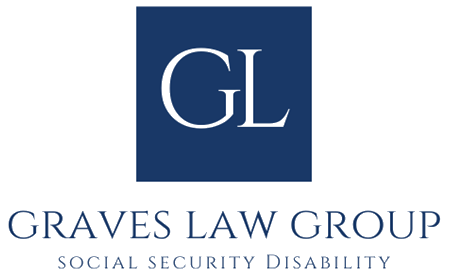Am I Eligible?
Let Us Get You The
BENEFITS YOU DESERVE
 Dallas Social Security Attorney Explains Eligibility For Disability Benefits
Dallas Social Security Attorney Explains Eligibility For Disability Benefits

One of the key questions that clients often ask their Dallas Social Security Attorney is how the Social Security Administration defines disability in order to determine eligibility for disability benefits. The agency generally defines a disabling medical condition as any type of condition expected to last for at least one year or result in death that renders you unable to work and to earn an income that is sufficient for you to live on. In order to make a determination about whether a condition has this effect, the agency considers whether it meets certain criteria.
 How Much SSI Can I Receive?
How Much SSI Can I Receive?
Monthly payments are based on the Federal Benefit Rate, or FBR, that is adjusted annually when there is a cost-of-living adjustment for traditional Social Security benefits. For 2015, the FBR is $733 per month for singles and maxed out at $1,100 for married couples. Texas contributes to the SSI payments, and they may add to SSI payments. While your federal SSI will never exceed the FBR, Texas may add funds that make the payment a bit higher. The amount Texas includes varies based on your marital status and where you live. Residents of mental institutions or prisons are excluded from receiving SSI. A Dallas SSI Attorney can help you determine if you are eligible for additional state benefits.
 Eligibility Criteria for Social Security Disability or Supplemental Security Income
Eligibility Criteria for Social Security Disability or Supplemental Security Income
- Is your condition severe? Determining the severity of your condition is one of the first things the agency will do. This is a subjective determination, and it will be made primarily by looking at how your ability to perform normal activities of daily living is impacted by your disability. For adults, the administration looks at how the disability affects your ability to perform normal work activities. For children, the consideration is whether the condition impacts their ability to do the normal activities that are appropriate for their age.
- How long has your condition lasted? In order to meet eligibility criteria, your condition must have lasted for at least 12 months. If your condition is severe but it is expected to last less than 12 months, you will not be eligible for benefits.
- What is the degree of physical or mental limitations caused by your condition? The administration will consider whether your physical or mental limitations caused by your condition prevent you from going back to any type of work that you have previously performed. They will look at whether you are unable to perform the tasks associated with any job you might have held within the past 15 years. They will also decide whether your limitations are severe enough that you will be unable to do other work compatible with your limitations.
 Denials
Denials
Most claims are denied at the application or reconsideration stage. These denials happen either based on the determination that the claimant can perform some type of work they have done in the past or that they would be able to do another type of work in the future, even if it is a type of job they have not done before.
 Fighting Your Denial
Fighting Your Denial
If your initial benefits claim is denied, a Dallas Social Security Attorney may take your case to an administrative hearing. In the disability hearing, your attorney will challenge the finding that you could return to one of your jobs or that you have the capacity to perform a new type of work. In order to do this, your attorney will thoroughly review your work history for the past 15 years and your existing medical conditions. They will then use their knowledge of such things as substantial gainful activity, work skills transferability, medical and vocational rules and other things that are used to determine whether a person is considered disabled or non-disabled for purposes of disability eligibility. Because a successful challenge depends on a strong knowledge of what factors are considered and the presentation of your claim, claimant’s chances of success are significantly enhanced with the help of a Social Security attorney Dallas TX.
 SSDI and SSI Requirements
SSDI and SSI Requirements
To qualify for either SSDI or SSI, two types of criteria, medical and non-medical, must be met. The medical criteria is primarily what has already been discussed. Your disability must have lasted or be expected to last longer than one year, and it must be one that severely limits your ability to engage in substantial gainful activities. Your ability to work will be determined by the judges or medical examiners evaluating your medical documentation and then assigning you what is known as a residual functional capacity, or RFC. If you are rated as sedentary, that means your condition limits you to only the ability to work in jobs that are mostly performed while sitting and that do not require you to exert much physical effort. You may also be found to be limited to jobs that only require light levels of physical exertion. If your disability is a mental health one, the judge or examiner may look at whether your mental limitations, such as your ability to concentrate, limit your ability to perform work. After assigning you a rating, that rating will then be used to consider whether you are able to perform the tasks associated with a past relevant job. The judge or examiner will also use it to determine whether your education and skills would allow you to perform another type of job for which you would be qualified despite your limitations.
 Evidence
Evidence
Since your RFC will be determined based on the medical evidence received, your Dallas Social Security Attorney will work with you to gather as much documentation as possible. The strongest cases are those that have substantial medical evidence, in which you are more likely to win your case. Your attorney will try to get a qualifying letter from your physician (if your physician is supportive) to support the basis for your claim.
 Getting Your Medical Information to the Social Security Administration
Getting Your Medical Information to the Social Security Administration
In your initial interview, your claims investigator will request names, addresses, and contact information for all medical professionals who have provided you with treatment as well as information about your last 15 years of work. The investigator will also look at whether you meet the requirements for both the SSDI and SSI programs. The non-medical criteria are pretty straightforward. In order to meet them, you must provide proof of your citizenship or immigrant status. You will also need to give information about your birth date and marriages. As SSI is a needs-based program, you will have to provide information regarding your income and resources. SSDI requires that you have built up enough credits through your work.
 Contact a Dallas Social Security Attorney
Contact a Dallas Social Security Attorney
Applying for Social Security benefits is an involved process, and one where a Social Security Attorney in Dallas-Fort Worth can be of great help. To meet with a Dallas Social Security Attorney, call Graves Law Group at (214) 321-6940. We serve all areas in and around Dallas-Fort Worth, TX.
Complete Our 3-Step Evaluation to See if You Have a Claim
Dallas Office:
12700 Park Central Dr.
Suite 520
Dallas, TX 75251
Austin Office:
1301 South Capital of Texas Highway
Building A, Suite 136
Austin, TX 78746
